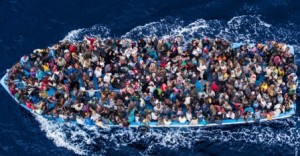Figures of world population
8 MILLION people made up the whole world population 10 thousand years ago when man lived only on hunting and spontaneous products of the land.
16 MILLION were the people who formed world population less than 2 thousand years later, thanks to the discovery of agriculture.
500 MILLION were the people who made up world population in the year 1000; 3 centuries later European population had reduced of one third owing to epidemics of Black Death which went on in Europe for 3 more centuries
1 BILLION people formed world population early in 800.
6 BILLION people have made up world population, by increasing continually, from those days till today.
7.7 BILLION people, according to the most optimistic forecasts of the united nations, will live on the earth in 2050.
10 BILLION people will be the world population at that date if the forecasts of other demographers are correct
11.1BILLION people will inhabit the earth at that date if the most pessimistic forecasts of the ONU are right.
44 BILLION people could certainly support the earth, according to a research commissioned by Dutch government, if many places were cultivated, the ones aren’t today ” but at the cost of turning the planet into an only huge trough”, Paul and Anne Ehlich, researchers at Stanford University, asserted.
It’s immediately evident that the one of the barges with their terrible cargo of migrants, who enter our territorial waters every day, is only one aspect, even if a dramatic one, of the wider problem of world overpopulation. We could define it a human bomb exploding on our coasts every day. On the other hand since overpopulation is a world problem and for us to be at the front line as to this emergency might be a stimulus: in fact we (Italians) could be, with our great cultural and humanitarian experience, the first to point out a solution for what represents the most serious menace to life survival on the planet earth.
[1] By courtesy of the montly review Focus.
About the Author
Written by Ferdinando Gargiulo
Ferdinando Gargiulo offers you a new perspective on why new viral epidemics, assaults, infanticides, suicide epidemics and even environmental catastrophes. Always engaged in his research decides to create a blog to offer his readers content of high value.
Search
Recent Post
Follow on Facebook
Find us on Google Plus
Follow on Twitter
Stories Archive
- Blog (132)
- child labor (10)
- child Prostitution (6)
- Climate Change (20)
- depression (53)
- Depression and suicide (51)
- Environmental catastrophes (22)
- epidemics (44)
- Genetic hypothesis of suicide (47)
- HIV (24)
- Leonardo Da Vinci (8)
- overpopulation (108)
- pedophilia (7)
- Serial Killer (33)
- Suicide Genes (46)
- suicides (56)
- The child as a product (10)
- the intelligent virus (106)
- Uncategorized (59,869)
- Unexplained aggression (36)
- You Tube (6)














